For generations, Florida has been the undisputed number one spot for U.S. retirees who choose to either relocate or become snowbirds. It’s increasingly popular too with Canadian retirees.
Maybe this perennial popularity is the reason why a few in the news media have started writing negative stories lately about the Sunshine State as a retirement destination, like this one from Kiplinger, “11 Reasons You Don’t Want to Retire in Florida.”
Regardless of what the occasional naysayer in the news media may say, retirees continue to vote for Florida with their feet (and RVs). In a recent year, more than three times as many people age 60 and over moved to Florida than the second place state, Arizona, according to a survey by SmartAsset. Even if you add North Carolina and South Carolina together, they still come in third place behind Florida and Arizona.
So many retirees have moved into Florida that it has a higher percentage of older residents than any other state. Overall, 19.1 percent of Florida’s residents are 65 and older, according to an analysis by the Pew Research Center. Sumter County, home of The Villages, the largest retirement community in the nation, is the only U.S. county with more than half its population (52.9 percent) age 65 and over.
What’s Florida’s magic? What keeps the state so popular with retirees and snowbirds, year after year? In response to Kiplinger’s doom-and-gloom article, here is our list of 11 reasons why you should consider relocating or spending the winter months in Florida when you retire.
# 1 – Say Goodbye To Shoveling Snow

This won’t happen in Florida! Photo by David Mark from Pixabay.
For some of you, this is all you need to know. Florida is uniquely situated as the only semi-tropical state in the continental U.S. Winters are warmer here than most anywhere else in the nation, except perhaps for Hawaii, and just try driving your RV there for the winter!
Sure, you might rarely see a brief dusting of snow in the northern end of the state, in places like Tallahassee, but if you settle in Central or South Florida, where most retirees go, you may never see snow again. Except, of course, when watching those blizzards up North on The Weather Channel. I can tell you from experience it’s not so bad watching blizzards “back home” on TV when you’re sitting on your screen porch in Florida wearing shorts and flip flops, knowing you will never again shovel snow. You’ll feel sorry for your friends and family who are still stuck up there in Buffalo or Cleveland, and say a quick “thank you” that it’s not you on those icy roads.
#2 – You May Live Longer and Be Happier in Florida
It’s no secret that living in a sunny, warmer climate can be healthier. That’s especially true for seniors, who are no longer stuck working behind a desk and can get outside and be active. Legend has it that Spanish explorer Ponce de Leon thought he discovered the Fountain of Youth in Florida. I don’t know about that, but you can expect to feel younger, healthier and just more alive living in Florida, especially during the winter months when you can enjoy so many outdoor activities popular with retirees like walking, biking, golf, swimming, tennis, nature hikes, boating, fishing, and even organized sports. Yes, many 55+ communities have active sports leagues for those who want to participate.
(See our post on the benefits of walking, one of the activities you can enjoy year-round in Florida.)
There’s plenty of science to back up the claim that a sunny, warm climate is better for you. Sunlight exposure increases your Vitamin D levels, which can raise your energy level, keep your bones stronger, and even prevent some cancers. (See this report from inspiyr.com for a more detailed discussion on this topic).
Ever heard of seasonal affective disorder (SAD)? That’s a medical condition where people who don’t get enough sunlight in the winter suffer from depression and lack of energy. It’s sometimes called the winter blues. You won’t have to worry about SAD in Florida, where winters are the sunniest (dryest) season of the year.
Other studies confirm that warm weather improves your memory and alertness, and is better for your heart and lungs. You’re even less likely to get the flu and other viruses because you are outdoors more.
#3 – Florida offers excellent healthcare for seniors
With so many senior adults living in Florida, it’s not surprising that there are plenty of medical specialists and clinics to deal with the most common ailments faced by older people. Florida has renowned hospitals throughout the state. They include Mayo Clinic in Jacksonville, Cleveland Clinic in Weston (Fort Lauderdale), Tampa General and Moffitt Cancer Center in Tampa, Advent Health in Orlando, and the University of Florida’s Shands Hospital in Gainesville.
For a complete list of the best hospitals in Florida, see this ranking from U.S. News.
#4 – You can afford to live here, no matter what your budget
There are thousands of million-dollar oceanfront condos and mega-mansions around Florida that attract wealthy buyers from throughout the world. That doesn’t mean you can’t retire to Florida on a more modest budget. Many retirees settle in 55+ communities with manufactured homes where prices are much more reasonable. In most such communities, you will find a good selection of homes priced around $100,000 or below, especially for resale homes. Depending on location, home size, and community amenities, prices may be higher or lower.
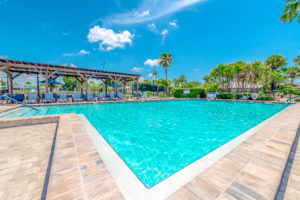
Riverside Club 55+ Community. Photo by SunCommunities.
While the cost is relatively low to purchase a home in a 55+ manufactured home community, you will feel like you’re living at a resort. Many are gated for added security and offer clubhouses, heated swimming pools, fitness facilities, classes and social activities, and even marinas and golf courses.
To see how far your retirement housing dollar can stretch in Florida, follow this link to several 55+ communities managed by one of the leading providers, SunCommunities. (For full disclosure, Kathy and I happily live in a SunCommunities neighborhood in Florida; SunCommunities is an advertiser on this blog).
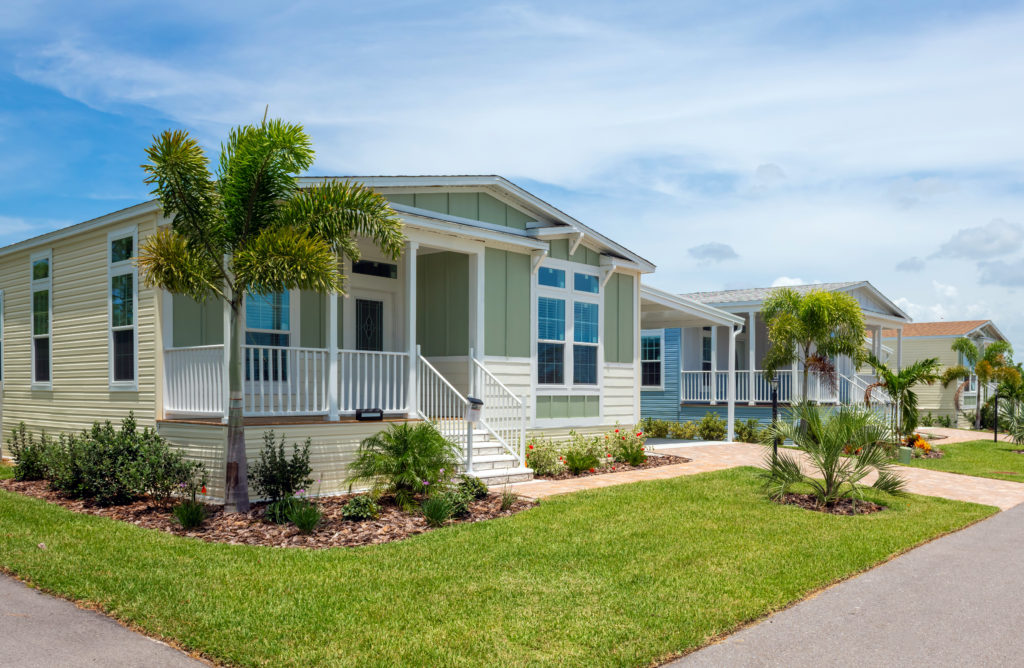
Blue Heron Pines 55+ Community. Photo by SunCommunities.
Many snowbirds who only plan to live a few months each winter in Florida simply drive their RVs to Florida and live in them. The state has a great selection of RV parks. For a fee, some parks will let you store your RV there in the summer, so you don’t have to haul it back and forth.
Retirement areas in Florida also feature 55+ communities with traditional “stick built” single-family homes, villas or condos, at a variety of price points. You will find beautifully landscaped, active 55+ communities from the best national builders including Del Webb and Sun City. The largest 55+ community in the nation, The Villages, is located in Florida. In fact, three of the top five largest 55+ communities in the United States are in Florida. The other two are On Top of the World (Ocala) and Solivita (Kissimmee).
Regardless of whether you buy a home in a 55+ community or an all-ages neighborhood, you will find housing prices in Florida are a good value, especially compared with much higher prices in the Mid-Atlantic, Northeastern, and West Coast states.
#5 – There’s water, water everywhere!
Florida is truly paradise for anyone who loves the water, whether it’s for boating, fishing, swimming, or just enjoying the calming effect of watching the sun (or moon) shimmering on a beautiful body of blue-green water.
Florida has more coastline than any other state besides Alaska. Plus, Florida’s 600-plus miles of beaches are world-class. In one recent (2019) survey by TripAdvisor, seven of the top 10 beaches in the U.S. are in Florida, including top-rated Clearwater Beach.
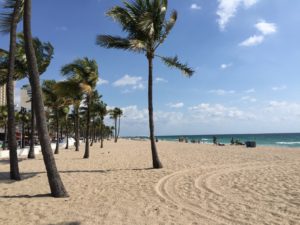
Fort Lauderdale
In Florida, you can choose from Atlantic Ocean or Gulf of Mexico beaches, or visit both coasts in a single day. Regardless of your tastes, Florida has a beach for you. From trendy and urban beaches like Miami Beach’s South Beach and Fort Lauderdale’s city beach, to undeveloped beaches only accessible by boat such as Shell Key Reserve (St. Petersburg) and Keewaydin Island (Marco Island). There are beaches where you can drive your car right on the sand, such as Daytona Beach, beaches where you can park your RV, including Flagler Beach, beaches that allow dogs, and even nude beaches such as Haulover Park in Miami. There’s truly a beach for everyone!
When it comes to water, ocean beaches are only part of the story. Florida is richly blessed with natural springs, lakes, bays, and rivers. One county in Central Florida, aptly named Lake County, has more than 1,000 lakes and rivers. Florida has more natural springs than any other place in the world, producing eight billion gallons of fresh water every day. Many of these springs are in state or national parks ideal for day trips, RVs and camping. Kayaking, tubing and swimming are popular on many of Florida’s springs and rivers. One of the best known Florida springs, Silver Springs (Ocala) still features rides in glass-bottom boats to give visitors a better view of what lives under the clear spring water.
#6 – Charming small towns await you throughout the state
Whether you’re looking for a place to retire year-round or just spend the winters, or merely looking for somewhere fun to go in Florida for a day or weekend trip, the Sunshine State has some of the most charming and livable small towns imaginable. From Perdido Key in the Panhandle to Key West, Florida is a large state where you can find the town that uniquely fits your tastes. You can immerse yourself in the history of America’s oldest city, St. Augustine, take in the cultural highlights of sophisticated Sarasota, go antiquing in quaint Mount Dora, or enjoy the sunsets on the Naples pier.
Other towns that often appeal to retirees in Florida include Seaside, Dunedin, Venice, Punta Gorda, Port Charlotte, Ormond Beach, Palm Coast, Delray Beach, Fernandina Beach, Lakeland, Sebring, Tarpon Springs, Anna Maria Island, Crystal River, Islamorada, Stuart, Ocala, Vero Beach, and of course, The Villages.
(See our blog post on Tarpon Springs, one of Florida’s more unique small towns).

Christmas in Mount Dora
In the winter and spring, many of these towns offer plenty of fun and interesting activities, such as arts and crafts festivals, antique car shows, and festivals tied to seasonal crops such as strawberries and blueberries.
Christmas is a special treat in many of these smaller towns. The lack of snow doesn’t keep Floridians from celebrating the holidays. St. Augustine has one of the nation’s best municipal Christmas displays, attracting thousands of visitors each November and December. Mount Dora and many other towns also go “all out” to decorate their towns for Christmas.
Are you ready to start exploring Florida’s small towns?
#7 – Florida is a tax-friendly state
Florida is one of few states that does not have a state income tax and does not tax Social Security income or dividends. Sales taxes and property taxes, while not the lowest in the nation, are about average. You can save considerable money by moving your residency to Florida from higher-tax states, but you may want to consult an attorney to make sure you meet your previous state’s requirements.
#8 – You can swim with manatees and dolphins, or watch mermaids
If you love nature, there’s no place else in the U.S. like Florida. Manatees visit the state every winter (humans aren’t the only snowbirds here!). You can see manatees up close at places such as Blue Spring State Park (Orange City) and Homosassa Springs (Crystal River). Dolphins frolic off both the Atlantic and Gulf coasts. Several attractions feature dolphins, with the most famous being Sea World (Orlando) and the Clearwater Marine Aquarium, home of Winter, a dolphin made famous by the Dolphin Tale movies.
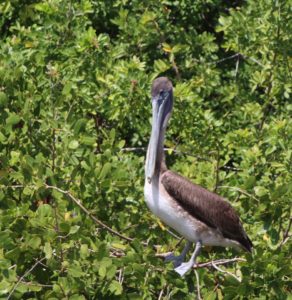
Photo courtesy of Audrey Popplewell.
Florida is popular with bird watchers, a hobby many retirees enjoy. You will find colorful egrets, majestic eagles, and large sandhill cranes, among many others, throughout Florida. Have you ever owned one of those pink flamingo yard decorations? Florida has real pink flamingos, not just the plastic and metal ones.
Perhaps the creature most often associated with Florida is the alligator, which inhabits waterways throughout Florida. You can view them safely at a number of alligator farms around the state, and when your grandchildren visit, this will be high on their list!
Let’s not forget the mermaids. Don’t think they are real? Then you haven’t visited Weeki Wachee State Park, where mermaids have been entertaining audiences since 1947. While visiting Weeki Wachee, check out nearby Tarpon Springs, which we featured in another post on This Retirement Life.
#9 – Florida is convenient to family and friends
You could retire to Arizona in the desert Southwest or to popular “expat” spots abroad such as Costa Rica or Panama, but for the majority of Americans and Canadians, those living in the eastern half of each country, Florida is much closer to home. Direct flights to major northern U.S. and Canadian cities are readily available from numerous Florida airports on all the major and discount airlines. Florida’s major airports also provide easy access to Central and South America, as well as Europe and other international destinations.
A common piece of advice to new homebuyers in Florida is to get a house with a guest room. Since Florida is both appealing and accessible, you can expect to have guests!
#10 – You can drive to your favorite cruise terminal
Speaking of convenient, when you’re ready to take your next Caribbean cruise, you won’t have to first book an airline flight when you live in Florida. Cruise ports dot the state, including the three busiest cruise ports in the world (not just the U.S., but the world): Port Miami, Port Everglades (Fort Lauderdale), and Port Canaveral. While you’re driving to Port Canaveral, you just might be lucky enough to see a rocket launched into space from nearby Kennedy Space Center.
# 11 – You can enjoy the best of both worlds
You don’t have to sell the house up North and say goodbye to family and long-time friends to still enjoy Florida. Do like the manatees do. Spend the winters in Florida, then go home for the remainder of the year. Down here, that’s who we call the snowbirds, and every winter about one million of them drive or fly down from Canada and the northern U.S. states.
Snowbirds typically spend anywhere from three to five months in Florida. About 10 percent of Florida’s snowbirds are international, with the majority being from Canada. Some buy or rent traditional single-family homes or condos. Others purchase or rent manufactured homes in 55+ communities. A great many bring their home with them, that is, they drive down each winter in their motorhome, fifth wheeler, or other types of recreational vehicle (RV). There are plenty of RV parks eager to accommodate snowbirds, offering amenities, activities, and a sense of community.
If you’re not sure whether you want to make a permanent move to Florida, try being a winter resident first. Of course, you know what they say. Once you get the sand in your shoes, you will keep coming back again and again.
Is Florida right for you?
As popular as Florida is, it won’t be everyone’s cup of tea. Living in a semi-tropical region is going to have consequences, including bugs and humidity. Both are far worse in summer, so if those are your concerns, try wintering in Florida instead of living here year-round. Florida is now the nation’s third most populous state, so you can expect traffic congestion and waiting lines at popular restaurants, especially in the busy winter months. While the beaches, lakes, springs and rivers are beautiful here, some retirees may prefer a mountain retreat or winter sports. The “best” place to retire is a very subjective issue.
If you are considering moving to any new locale, domestic or international, the best advice is to go experience it first. Try to spend at least one month in the state and community where you are considering retiring. Or, go first as a snowbird and spend a winter there. If you like it, you can either continue going back as a snowbird or make a more permanent move. Many snowbirds do eventually become permanent Florida residents.
Another option is to rent for your first winter season or first full year in Florida, to make sure it’s the right fit before purchasing property here. Rentals are available in 55+ communities and RV parks, as well as waterfront condos and more traditional neighborhoods.
For the majority of U.S. and Canadian retirees who are looking for a warm-weather retirement destination without leaving the comforts, legal protections, healthcare system, and security of North America, Florida is likely to remain the top choice for a long time to come. There’s nowhere else in the U.S. like Florida.
Note to readers: Some of the links on thisretirementlife.com are affiliate links from which we receive a small commission from sales of certain items, at no extra cost to you. As an Amazon Associate and a participant in other affiliate marketing programs, we earn from qualifying purchases. These commissions help support this blog so we can continue providing timely and useful information about living life to the fullest during the retirement years. See the full disclosure statement here.
Love this story? Sign up below to receive future blog post from This Retirement Life, sent to your email box, free of charge.
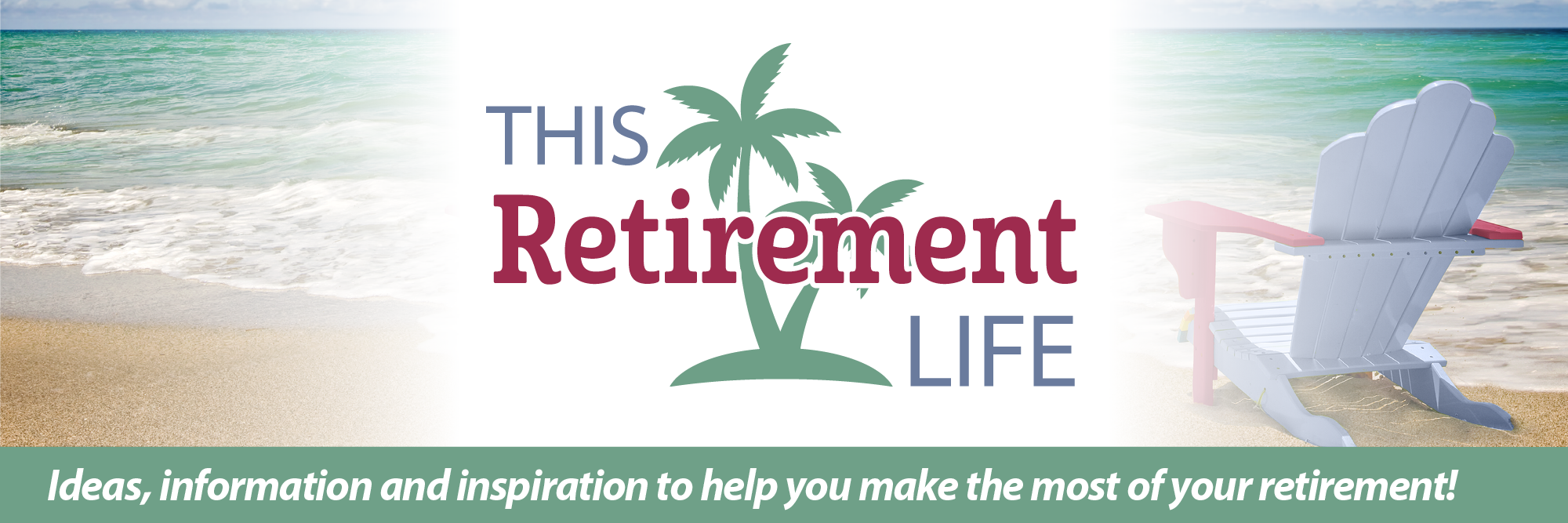
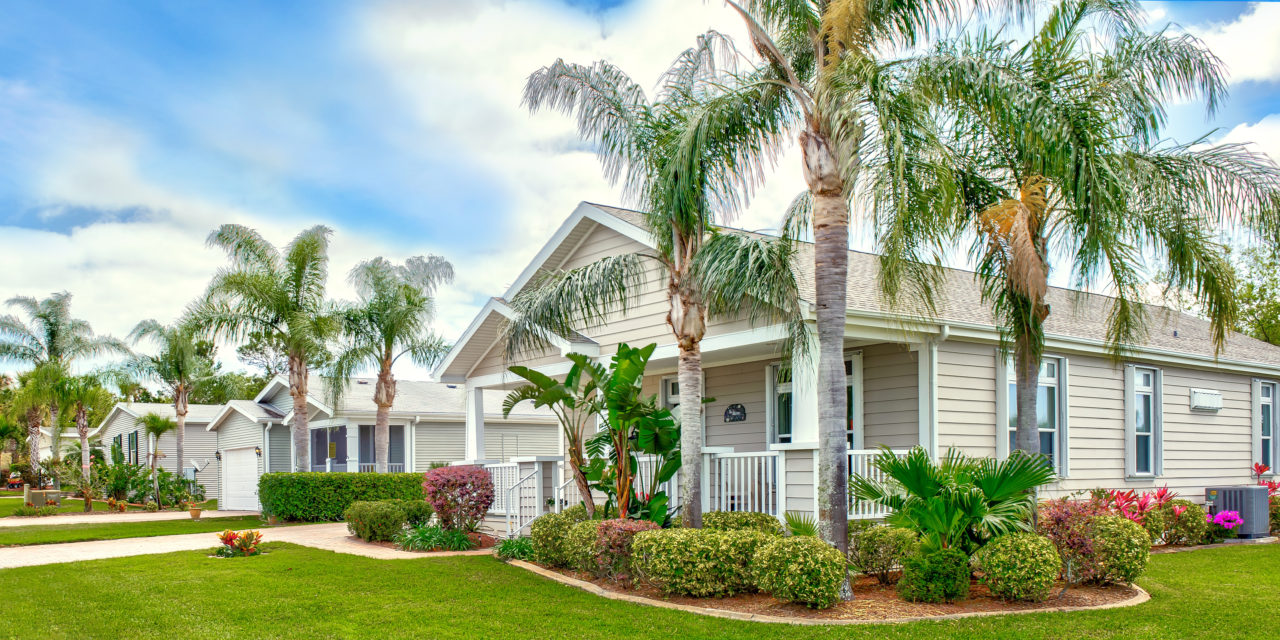




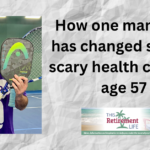




Trackbacks/Pingbacks